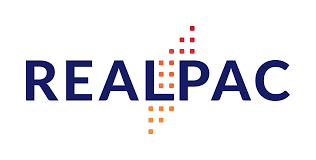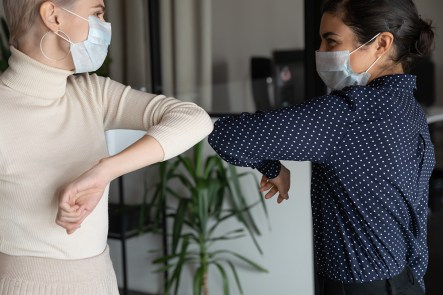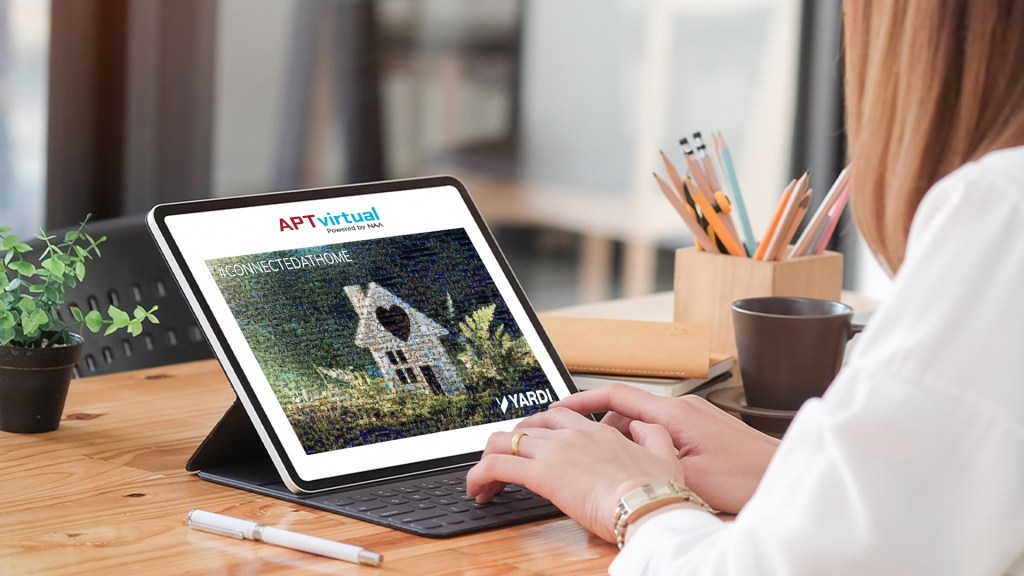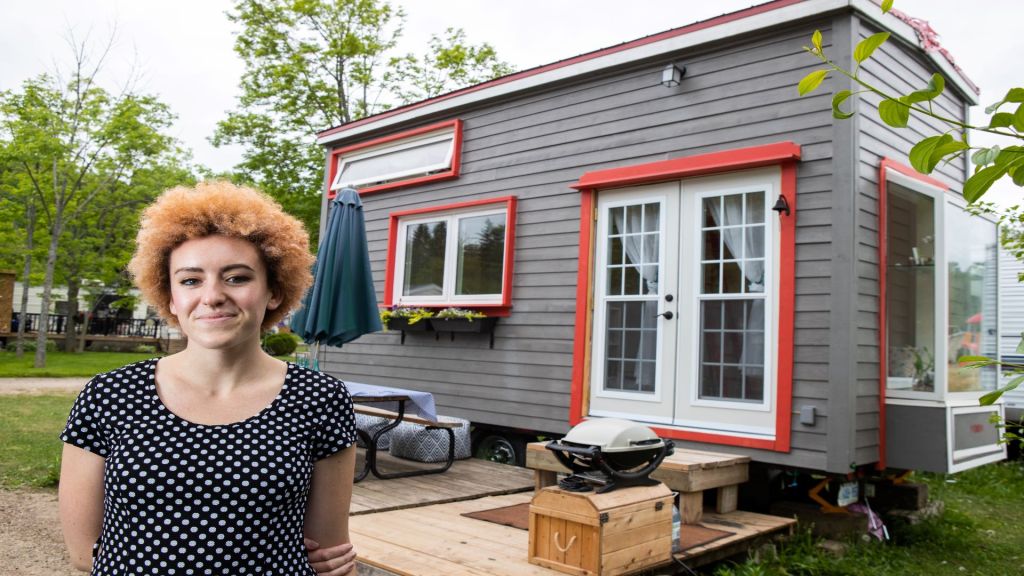Yardi clients placed high in the third annual J.D. Power U.S. Senior Living Satisfaction Study, a measurement of the resident experience this year in assisted living, memory care and independent living communities. Chicago-based The Senior Lifestyle Company LLC earned a tie for the highest rating among assisted living/memory care providers for overall customer satisfaction among family members or other decision-makers. Residents named Life Care Services LLC of Des Moines, Iowa, the top independent living operator for overall satisfaction. Responses from nearly 5,000 senior living residents and their families formed the basis of the J.D. Power study. Survey participants rated community buildings and grounds, staff, dining, price paid for services, resident activities and the family member’s living unit. J.D. Power said in a news release that “amid continued worries about COVID-19 outbreaks in senior living communities nationwide, the families of assisted living/memory care residents are generally very satisfied with assisted living/memory care operators” and their initiatives on cleanliness, social distancing and other elements of dealing with the pandemic. More information about the consumer insights, advisory services and data and analytics provider’s study is available here. The Yardi Senior Living Suite comprises a single connected solution for managing all types of senior living communities. Learn more and view a brief...
Long-Term Care
Pharmacy Partnership Begins
Registration has started for the Pharmacy Partnership for Long Term Care Program. This innovative collaboration facilitates free, on-premises COVID-19 vaccinations for senior living providers. CDC facilitates vaccination services for senior living residents The Center for Disease Control (CDC) has partnered with CVS and Walgreens pharmacies to offer vaccination services for residents of senior facilities. The new program, called Pharmacy Partnership for Long-term Care (LTC), “provides end-to-end management of the COVID-19 vaccination process, including cold chain management, on-site vaccinations, and fulfillment of reporting requirements, to facilitate safe vaccination of this patient population, while reducing burden on LTC facilities and jurisdictional health departments,” reports the CDC. Senior living providers gain free access to services such as: on-location clinic dates orders for the vaccine and necessary supplies vaccine administration cold chain management for the vaccine reporting to local, state and federal jurisdictions compliance with Centers for Medicare & Medicaid (CMS) COVID-19 testing requirements for LTCF staff Skilled Nursing facilities (SNF) must register through the National Healthcare Safety Network. Assisted living facilities (ALF) must register via REDcap. Registration is non-binding and facilitates may opt out at any time. What to expect during Pharmacy Partnership for Long-term Care registration Providers will have the opportunity to select between CVS and Walgreens as their pharmacy partner for the initial phase of the vaccinations. After the initial phase (about two months) facilities may chose a pharmacy provider of their choice. Online sign-up details will be disseminated through the providers’ communications channels including but not limited to websites and email. The CDC will coordinate facilities’ preferences with the pharmacy partners. Please be advised that the CDC may reassign facilities to accommodate availability and other considerations. Registrations for the program ends November 6. Explore FAQ regarding the Long-Term Care Program for COVID-19...
Flexibility Holds Key...
For future of CRE
COVID-19 has had a jarring impact on commercial real estate in the form of health risks, stunted growth prospects, permit and construction delays, reduced income for property owners and the acceleration of e-commerce at the expense of physical stores, among other disruptions. The pandemic precipitated what global management consultant firm McKinsey & Company calls “an unprecedented crisis for the real estate industry.” What will the CRE landscape look like when the pandemic fades? For one thing, new building codes designed to limit the risk of future pandemics could affect standards for HVAC, square footage per person and amount of enclosed space. Office building tenants will almost certainly be driven “to look beyond their traditional building preferences. In this new environment, tenants will gravitate towards the properties that best solve for flexibility, adaptability, and well-being,” according to Erin Saven and Evan Danchenka of Gensler, a global architecture, design and planning firm. Maria Sicola, a founding partner of real estate planning services provider CityStream Solutions and sales and training consultant Integrity Data Solutions, believes tenants will likely make their space “more personalized and less communal – we will likely not return to all-private offices and fancy conference rooms. But all space – personal and meeting — will need to be viewed with more breathing room.” And, of course, cleanliness will command more attention than ever. Commercial Property Executive predicts that “some products and techniques that have been used in medical office buildings and in hospitals are going to be brought to the office sector,” such as microbe-resistant door handles and elevator buttons and sanitation with ultraviolet light. Amenities as differentiators Building owners and developers, for their part, would be well advised to explore “new real estate design strategies that can differentiate them from the competition and...
Amenity Reset
For Multifamily
Amenities can be the irresistible lure that persuades apartment searchers to choose one community over another. Rooftop pools, fitness suites, concierge package service, housekeeping, business centers and dog wash stations all have devotees. “Over the past several years the multifamily asset class has been engaged in an amenities war, with projects offering better and more luxurious add-ons in order to draw in residents,” GlobeSt.com reported in April 2020. But COVID-19 prompted some apartment residents to rethink what matters to them, which in turn forced owners and managers to reevaluate their offerings. “Everybody is really searching for creative solutions right now,” Jeremy Brutus, co-founder of gym facility management company Urbn Play, told the New York Times in September. “I don’t think amenities will ever go back to the way they were before,” added Whitney Kraus of New York residential sales and leasing specialist Brown Harris Stevens Development. Several of the most common changes are fairly unobtrusive, such as lounges repurposed as schools, limited capacity in common areas, clubhouses divided into separate rooms, movable couches, touchless key fobs, cordoned-off work and recreation areas, and mandatory reservations for facilities. Package delivery and storage services and HVAC upgrades to make interior air cleaner are also in greater demand, according to Rick Haughey, vice president of industry technology initiatives for the National Multifamily Housing Council. Some communities have even swapped steel handles on barbells, weight machines and other equipment for copper, which is more expensive but harbors the coronavirus for a shorter time. Apartment communities on the high end of the rental scale, such as New York’s Madison House, can get even more creative with members-only primary care and emergency medical service offerings. Sollis Health, which services the building, says 50% of its business is house calls made by...
Remote Onboarding
Best Practices for Property Management
Working from home, remote work, telecommuting: whatever you call it, it’s a challenge for property managers across the nation. If you’re lucky enough to be hiring in during the pandemic, you’re also facing the challenge of onboarding in a remote work environment. It’s not easy. With the right tools, however, you can onboard new team members with ease and efficacy. Check out these recommendations from industry experts for remote onboarding, simplified. Just when you thought property management couldn’t get any harder… Property management is a notoriously tough business. The National Apartment Association reports an average turnover rate of 33% in 2019. The highest rates are for leasing and maintenance, at 31.9% and 39.2% respectively. With each vacant position comes the time and money spent on marketing, hiring and training. The time it takes to train a new employee varies. It’s safe to say, though, that hours spent training a revolving door of new hires isn’t an ideal use of your team’s time. When translated to dollars, it costs between $5,505.80 and $9,444.47 per turnover to replace an entry-level employee. High turnover is costly, time consuming and counterproductive. Then a pandemic arrives that complicates everything for everyone everywhere. Property managers who are lucky enough to hire must now do so without interviewing or training applicants in person. Teams attempt to build office culture and support with the same screens used for work and productivity. A career path that deters 33% of employees each year now faces additional challenges. Fortunately, robust e-learning software is here to help. What methods can help property managers overcome these challenges? Begin with the cloud. Cloud computing empowers property owners to implement e-learning and remotely train new hires. The system facilitates real-time collaboration between participants on documents and projects. Additionally, software that operates on integrated and centralized cloud storage is advantageous to a piecemeal assemblage of programs. Patricia Pomies is chief delivery officer at Globant, an innovator in workplace efficiencies. The cloud is a powerful tool because it provides 24/7 access to learning content. Remote, easy access is key for distance learning. “Their approach should be focused on promoting a culture of continuous learning, and training programs should live in one central, digital location for employees to access easily,” says Pomies. “It’s also best to give employees access to different learning experiences and training based on their time, interests, level and expertise—whether they are a remote employee or not.” Create online trainings that are branded and customizable. Consider a remote learning platform that enables branding and customization. Since your new hires won’t go into a physical office each day, it is essential to use branding to instill a sense of place and company culture. Customization ensures that your messaging within the e-learning platform is consistent with corporate messaging. Of equal importance, you will be able to customize learning modules based on the new hire’s role within the organization. This ensures that new hires can prioritize and specialize as needed. Customized content also encourages the most engagement from participants. Jim E. Guilkey, author and doctorate in instructional design and learning strategy, suggests that engagement improves problem-solving skills. In an interview with Society for Human Resource Management, Guilkey encourages clients to explore engaging options such as virtual collaboration rooms and role playing. “Instead of simply lecturing, put the impetus for learning on the learners,” he says. He recommends putting students in a virtual collaboration room to evaluate real and hypothetical situations pertinent to their roles. Together, they can analyze, troubleshoot and propose solutions and improvements. Rather than relying on industry standard, pre-set modules, customized courses provide hyper-local learning opportunities. Presenting scenarios specific to the brand, property or region create a stronger sense of place and culture for remote learners. Check for comprehension before assessments and analyze assessment data for additional learning opportunities. When teaching in person, an instructor can use body language to gauge whether content is “sinking in”...
Navigating + Embracing Change
REALPAC Virtual Chief Executive Summit, Canada
Two catalysts prompted drastic changes in the real estate industry in 2020: COVID-19 and remote work environments. During REALPAC 2020, Anant Yardi, president and founder of Yardi, was joined by Robert Courteau, CEO Altus Group for the session “Emerging and Relevant Proptech in a new COVID-19 World Future of the Canadian and Global Economy.” The leaders dove into the impacts of the pandemic and remote work to explore the latest trends, lessons learn, and projections for the future. Digital services, accelerated In the past eight months, proptech has entered a point of inflection. These occur when new technology enters and permanently alters an industry. Proptech leaders such as Yardi are exploring the applications of AI, big data and IoT in real estate. From building automation to chatbots, those three components pressed the industry forward through the pandemic and the transition to remote work. “Of the hundreds of tech companies that have been started in real estate, their success or demise will be accelerated by the pandemic,” said Mr. Yardi. “It’s a very exciting period to study these technologies and bring them to the market for the benefit of the industry.” The research and innovation needed to bring technologies to market are moving at a faster clip. Panel participants observed that the industry has changed from a push model to a pull model. Real estate owners now approach proptech innovators in search of tools and solutions. Owners are seeking and investing in technology rather than waiting to be convinced of its value. Trending tools are showing permanence Since the onset of the pandemic, owners are implementing technologies that convert transactions and communication to paperless and automated systems. Touchless, client-facing solutions have also experienced a surge in interest and implementation. In the US and soon in Canada, Yardi Chat IQ offers 24/7 chatbot services with natural language processing. Prospects can learn more about the property and receive details on available units. Once interested, prospects can schedule a self-guided tour via the automated system. Smart home tools permit self-guided tours with enhanced security features. Once a prospect schedules a tour online, they can arrive at the unit and complete a tour on their own: the system verifies their ID and receives driver’s license information. It can validate their identity using a “selfie” image. The system then issues a unique digital key that permits the prospect to enter. Sensors verify that the tour is complete and lock the door once the prospect has left the unit. Leasing agents have access to all tour data through their dashboards. They can see when the door was unlocked, by whom, and when the person exited. That data connects to CRM functions so leasing agents can follow-up after the tour. “These tech advances are so fascinating,” said Mr. Yardi. “The capacity to work with the industry, this very vibrant industry, is very promising.” Digital technology that was once viewed as a luxury is now seen as essential for safe and efficient properties, observed the panel. Mindful adoption of technology Not all tech tools are equal in value to real estate professionals. Discerning which tools to adopt and which to forego is a delicate balance. “Proptech is a vision and a spirit. The spirit of proptech is to understand new technologies and how best to apply them in real life problems. In that spirit, there are new opportunities that will surface,” said Mr. Yardi. “The vision of proptech is about how best to run real estate operations, taking into account tech transformations,” he continued. “My counsel to industrial practitioners is to keep an eye on proptech but everything they do has to be based on a clear value proposition and that has to be influenced by any of the following key elements: increase revenues, reduce cost, increase customer satisfaction and reduce risk.” He added, “These drivers don’t change. These driving principles are key in the world of business....
Did COVID-19 Spark
A Renewables Renaissance?
Some industries, such as technology and online media, are doing well amid COVID-19, even as the pandemic cuts a swath through virtually every public health, political, social and economic structure. Other segments of the economy, such as travel and hospitality, face a perilous future. And what about the vital energy sector? Before the pandemic hit, energy demand was projected to grow 12% between 2019 and 2030, as developing nations broadened their power generation capacities. But COVID-19 “has brought the generation of energy from fossil fuels to breaking point,” says the World Economic Forum, with global energy demand declining by 5% in 2020. Despite a larger population and world economy, demand in 2050 will be about the same as it is today, according to risk management and quality assurance experts DNV GL, due partly to the effects of COVID-19. “The scale of the fall in demand, the speed of change, and how widespread it has been have generated a radical shift that seems to be more than a temporary short-term drop in demand for fossil fuels, at least in the power sector,” Nelson Mojarro, a World Economic Forum advisor, said in June. That development has opened the door for renewable energy generation to play an even more prominent role on the world energy scene. Renewables, including solar, whose cost has fallen by 82% over a decade, are the lowest-cost source of new power generation, according to the International Renewable Energy Agency. That trend is expected to hold over the foreseeable future. And COVID-19, Mojarro says, “has had a game-changing effect in accelerating the clean energy transition in the power sector.” Within 10 weeks of the start of widespread lockdowns, according to data compiled by the International Energy Agency, the U.S. increased its renewable energy consumption...
Looking at Liability
Protecting your property
As public health restrictions lift, many homes are welcoming loved ones, guests and clients again. The influx of visitors may have you second guessing your renters insurance policy. If you’ve wondered if you’re liable for COVID-19 transmitted while in your rental, read on. What is the “liability” part of your renters policy? Liability insurance is a specific field of coverage on your renters insurance policy. It protects you, the purchaser, from the risk of liability resulting from legal action. Such legal action may pertain to bodily injury or property damage that guests experience while at your home. When we think about liability insurance for rentals, slips and falls come to mind. If someone delivers a mattress to your house, trips and falls over an extension cord in the hallway, that’s a matter for your liability insurance. But what happens when the threat is unseen? Hundreds of flu seasons have come and gone since the advent of renters insurance. Few people, however, considered their liability if someone contracts an infectious disease while in their rental. Infectious diseases such as the common cold, flu and COVID-19 may cause bodily harm, but they are treated differently under liability insurance provisions. The liability of disease is a contentious topic: to what degree can a property owner or tenant protect occupants and guests? What measures are they required to take, legally or ethically? How precisely could guests pinpoint the exposure to the rental? Answers will vary, but for nearly all renters, your liability is limited. The majority of liability clauses in renters insurance policies contain virus and pathogen exclusions. This includes liability, loss of use and personal harm due to exposure to a virus. Consider these CDC guidelines for guests visiting your community. Does remote work influence my liability...
Better Health Assessments...
With Yardi Long Term Care
A registered nurse quoted on the American Assn. of Nurse Assessment Coordination’s website says that obtaining baseline patient health data “is an invaluable tool to us in long-term care. It involves so much of the nurse and her relationship with the resident and getting them to get to that highest level of function. It is so important, it’s so exciting, and it’s a tool that just drives great care.” Completing that assessment, known as the resident assessment instrument minimum data set (RAI MDS), is a mandatory element of guiding resident care planning and monitoring in long-term care settings. But compiling the required information manually often involves uncoordinated efforts by multiple parties who don’t always know if the information they’re dealing with is current. Nurses, administrators and other senior care providers now have the means to complete the RAI MDS process more easily and accurately. Yardi Long Term Care, a new mobile electronic health record solution available in Canada, saves time and eliminates errors by automatically prefilling the RAI MDS with data from previous assessments through electronic workflows. Staff members updating an RAI MDS don’t have to spend time entering data or backtracking through a lengthy paper trail. Mobile charting that sends resident data from the point of care to the MDS saves even more time. Yardi Long Term care also tracks frequently changing regulations and automatically checks submissions for fatal errors, missed fields and inconsistencies. It provides a clear audit trail, with user logs, change reasons and up-to-date chart data housed in a centralized platform. Yardi Long Term Care is the Canadian version of Yardi® Skilled Nursing, a new solution that sends resident data from the point of care directly into the MDS. “Accurate data from Yardi Long Term Care will equip senior living...
5 Fun Holiday Ideas
With social distancing in mind
Social distancing and partying don’t seem to go hand-in-hand. With a little creativity, though, you can host fun holiday events for your community while honoring safety protocols. Check out these five fun holiday party ideas that add value, encourage a sense of community pride and resident loyalty. Themed partner yoga party The first step in hosting a successful partner yoga party is to select the location. Warmer locations (ahem, southern states) may still make use of their tennis courts and other outdoor spaces. Cooler climates may consider their roomy community club or renting space in a local brewery or event center. You’ll want an area that is spacious and level. Once you decide where to host your partner yoga party, the rest is super simple! Contact a local yoga studio and request a private teacher for your event. The teacher should be familiar with the basics of partner yoga or acro yoga. Once the details are set, have residents register via the community concierge. Encourage residents to find a same-household partner and dress in holiday-themed activewear. (Cozy holiday pajamas would work, too!) On the day of the event, divide your space: every ten feet, leave a sticker, party favor or other marker. That will let duos know where to place the center of their mats. Then the experienced yoga teacher can guide pairs through safe yet fun postures that encourage teamwork, communication and laughter. If you charge for the event, consider donating a portion of the proceeds to a local nonprofit. #ShopLocal wine + beer tasting Collaborate with a local wine shop or brewery for this unique spin on bar hopping and wine tasting! Many local shops offer tastings that encourage clients to experience new brands or unique beverages. You can replicate the experience...
Office Re-entry
Updates from Service Providers
The topic of safely re-entering the workplace has now been top of mind for over half a year. While some businesses are still closed and employees are working remotely, there are a growing number of offices who have decided to open their doors following local safety guidelines. On a recent BOMA webinar, a group of service providers ranging from software vendors to elevator engineers to wholesale suppliers discussed best practices for ensuring employee health and safety while successfully reopening their physical spaces. Brian Sutherland, Yardi industry principal, detailed some trends that Yardi has seen based off research from CommercialEdge: Office vacancy is currently at 10-15%. Since April, subleasing is up 35% as tenants try to either downsize or upsize for distancing purposes. New construction is down 40% from the previous year among office assets. Office demand is changing: f leasing terms, private office demand and suburban models are all growing. Rent is being paid, but physical occupancy is at risk: landlords are considering whether long-term leases are sustainable or whether tenants will not need the space they’re paying for. Only about 12% of New York City workers are back in office, as of latest estimates. There are specific questions to analyze when considering a move back into the office. Employees who want to confidently re-enter the workspace are asking how to accurately report health status updates and how to stay connected with colleagues. Office managers, on the other hand, are tasked with ensuring a safe and orderly re-entry while assessing how to limit available workspace to promote health and safety and follow guidelines. Landlords want to encourage tenants to return to the office, but they first need to understand their tenants’ use and occupancy of the space. In order to help answer some of...
APTvirtual
How we connected
The apartment industry met online at APTvirtual, powered by NAA, from Nov. 2-6 to forge more powerful connections with each other and the technology that will take us forward as we stay connected at home. With the theme “Yardi keeps you and your residents connected” we were there to share, learn and spark inspiration together. What we shared It was a pleasure to not only hear your voices but also see your faces, including through the virtual mosaic that allowed attendees to be together in spirit. Thank you for sharing your photos to help build this fun digital community — look closely to find your friends and colleagues. How we learned We hope you joined our educational sessions, but if you missed them and were a registered attendee, you can watch them on demand until Dec. 4. Big Data, Benchmarking and Forecasting: A Tale of Two Studies With advances in big data, machine learning and artificial intelligence, the ability to manage your business with laser precision and shape future outcomes has never been greater. In this session, industry leaders share how they use operational benchmarks to identify opportunities and predictive analytics for marketing and leasing to make timely changes and realize gains. Here are a few sound bites: “Using machine learning, we’re able to pick out patterns and trends in a much broader pool of data. We have lots of data points, including around spending on SEM and how it correlates to leasing ratios. Seeing the data reinforces decisions about when to spend marketing dollars to meet our leasing and revenue goals,” said Shawn Cardner, executive vice president at Grubb Properties. “Our asset management team takes a very active role in the budgeting process, and benchmarking is extremely important to them. Being able to look at a region and do comparisons — down to spending on plumbing and landscaping — gives us visibility down to budgeting line items,” said Joe Anfuso, chief financial officer at MG Properties. Emerging Issues: Looking Ahead to the Post-Pandemic Future Even as we deal with ongoing economic and societal impacts from the COVID-19 pandemic, we are all thinking about what the future might look like. Universal truths for our industry will persist: people will still need to rent apartments. “What we’re seeing from our RentCafe.com surveys is that renters want more choice with self-guided and virtual tours. I think these options for more convenient touring will persist long after the pandemic,” said Esther Bonardi, vice president of marketing at Yardi. Bonardi was joined by Garin Hamburger from Pinnacle, Pei Pei Mirabella from Bozzuto and Ian Mattingly from LumaCorp to share forward-thinking ideas for multifamily’s post-pandemic future, including marketing and leasing. Where we talked tech Thanks for visiting our booths to chat with Yardi experts and tell us what you’re excited about! Big data and self-guided tours are leading the way into 2021, and according to our polls, 69% of respondents are most excited about self-guided tours. Asset IQ, part of Yardi Elevate, uses big data to deliver predictive analytics and prescriptive actions to lower costs and increase revenue. RentCafe Self-Guided Tours helps operators meet the demands of a changing market, giving prospects the ability to tour at their own pace and maintain social distancing. Booth visitors also learned about RentCafe Chat IQ, an AI-powered chatbot that learns and adapts to fit each community. Who we met We hope you enjoyed hearing from Anant Yardi himself during the Connect with Yardi Executives session. In addition to talking about the state of the industry and tech trends, Mr. Yardi said, “Relationships with our clients are so important to us. I’m looking at all of you and so many memories of working together over the years are coming back. Thank you for dedicating your time to this.” How to connect with us now Missed us at APTvirtual? Contact us, and we’ll show you what you...
Arcadia
Expands with Yardi IM
Arcadia Management Group has expanded its use of the Yardi product line with Yardi Investment Manager. Arcadia will continue to grow its service offerings to be a one-stop shop for investment and property management operations. Investment Manager will take the investment side of Arcadia’s business model to the next level for third-party clients as well as investors and strategic partners. The accessible online portal provides a secure way for investors to retrieve investment and portfolio metrics and related documents anywhere, from any device. Arcadia will be able to automate the subscription agreement process and easily view and track all key fundraising milestones. “Investment Manager provides internal stakeholders with an intuitive, easy to understand view into our most complex deals and joint ventures. The user-friendly online portal gives our investors and external partners timely access to data they need, which allows us to further expand our fund management offerings,” said Gary Shaw, president of Arcadia. With Investment Manager, Arcadia continues to increase efficiency by leveraging industry-leading technology. It will provide a platform for internal collaboration and investor transparency. This will allow Shaw and his team to expand and improve client relationships and service. “We are very excited that Arcadia has chosen Yardi to expand their investment management services, and we look forward to further empowering Arcadia’s growth and success,” said Robert Teel, senior vice president of global solutions for Yardi. Download a brochure to learn more about Yardi Investment Manager. About Arcadia Established in 1986, Arcadia Management Group is based in Phoenix, Arizona and manages over 40 million square feet of commercial real estate across the United States. Arcadia’s business model is unique in that the company’s core business is third-party property management services. This management-centric approach, without internal brokerage or leasing, makes Arcadia attractive...
RentCafe Wellness
Boosts Connections
The latest addition to the Yardi Senior Living Suite helps senior living staff and residents’ families stay connected as senior living communities maintain largely isolated from outside contact during the COVID-19 pandemic. Community managers can use RENTCafé Wellness to schedule healthy activities, track attendance and create custom-branded online wellness calendars. Activity organizers can create calendars on a community’s marketing website, manage RSVPs from residents and their families, and assign staff to the activities. “RentCafe Wellness combines with the rest of the Yardi Senior Living Suite to help communities elevate residents’ quality of life and maintain connection with family members in these challenging times,” said Ray Elliott, vice president of senior living for Yardi. “The solution also helps community staff work more efficiently by enabling management of calendar content, design, publication, registration and attendance from a single connected solution.” RentCafe Wellness is an element of RentCafe Senior Living, a secure portal that residents, staff and families use for payments, communication, service requests and other operations. Learn more about how RENTCafé Wellness and other RENTCafé Senior Living solutions can help residents of senior living communities stay connected and...
Inclusive Hospitality...
Changing the status quo
At its core, the travel industry encourages new experiences and exploration. It invites guests to find comfort in unknown terrain and discover a sense of belonging amongst new people. Unfortunately, the travel industry has not historically operated in the same welcoming inclusivity that it promotes. “This world is a diverse one—so how could the very industry that promotes the exploration of that world not be?” inquires Tiana Attride, editor at Here Magazine. As the sole black editor, often the only black staff member and commonly the only person of color at press events, Attride is frustrated by the lack of inclusion practices within travel businesses and marketing. Sheila Johnson, co-founder of RLJ Companies, a Yardi client, founder and CEO of Salamander Hotels & Resorts, has experienced a similar discord between travel industry messaging and practices. In her 40 years as an entrepreneur and 15 years focusing on hospitality, she has seen small improvements in inclusion and equity practices. “But there’s also the rub,” Johnson reflects. “I recognize we still can and should do more.” Both women, like other minorities interviewed from the industry, see a clear path forward. A foundation for success The first step to create a more inclusive hospitality industry begins with acknowledgement. “An unfortunate number of people in this country – black and white – are far from coming to grips with institutional racism, the kind of racism that is also baked into the very fabric of so many American institutions,” says Johnson. “For this reason, many people still cannot even talk about racism, much less actually do something about it.” But hospitality providers are strongly positioned to tackle the issue head on. “Our industry is a living laboratory of cultures. Every day we make it possible for team members from...
Tiny Homes
Essential housing
On the surface, tiny homes seem to address the needs of those who need the least. The affluent New Yorker seeking a COVID getaway near the beach, or a recent grad making a name for herself off the grid are the ideal images of tiny house inhabitants. But in (what we hope is) the wake of a pandemic, public health officials and city planners are seeing the value of tiny houses for those in need. The compact panacea This summer, the U.S. faces an interconnected web of high unemployment, a high cost of living near job hubs and seemingly unending wave of COVID-19 infection rates. Those who can are migrating from cities to less populated suburbs in search of space and peace. They’re often taking their remote work with them. But for more than half a million homeless people in the United States and 16.3 million unemployed, that’s not an option. City planners are turning to tiny houses to de-intensify shelter housing, bring people in off of the streets and offer affordable housing for those in need. Additionally, the compact units facilitate social distancing while offering access to private, outdoor space that isn’t readily available in multifamily and public housing. Long term, low-cost tiny houses provides a pathway to homeownership (and potentially, wealth-building equity) for marginalized communities. It took a pandemic to showcase the true value of tiny homes. Affordable housing and homeless services in America are permanently enhanced because of it. Tiny homes improve public health in major metros Seattle was one of the first cities in the US to feel the full force of the pandemic. The city’s vulnerable populations, the homeless and elderly, were the hardest hit. On April 20, Public Health Seattle & King County officials reported 112 COVID-19 infections amongst shelter occupants and staff. Later that month, The Multi-Service Center South shelter in San Francisco reported 96 guests and 10 staff tested positive. As the pandemic spread, major metropolitan reported high infection rates among vulnerable populations. Homeless shelters, traditionally arranged in barrack-style floorplans, did little to slow the spread of the virus. Major metros throughout the nation soon ditched conventional shelter arrangements to promote social distancing: they removed beds to lessen density, and converted hotels and public buildings into emergency shelters. These short-term solutions, however, highlight problems that won’t quickly fade from memory. Homeless shelters are underserved and overpacked. Low-Income Housing Institute’s (LIHI) tiny house villages stood out as a long-term solution. They facilitate public health procedures, foster a sense of safety and autonomy, and have proven to be more cost-effective than conventional shelters. LIHI operates 12 villages serving Seattle, Olympia and Tacoma. The newest community stands in Puget Sound, offering 400 houses that have helped more than 1,000 each year. Two more communities are in the works with at least 50 houses. Each community contains units with less than 100 square-feet. The tiny spaces offer more personal space and privacy than shelters. The houses permit residents to live and sleep more than six feet apart. On-site case managers provide the support residents need while facilitating a path towards permanent housing. The villages pay off for residents as well as city managers. The City of Seattle, for example, funds nine villages. The average cost of tiny house living is only $38 per night. That’s $18-$94 less per night than The City’s current housing options. The construction of the homes is also a cost saver for The City. Shelterforce organizes volunteers to build the homes. Much of the construction can take place off-site in volunteers’ yards when necessary. The free labor reduces home construction costs to $2,500 each. In dire straits, Shelterforce hires contractors who build the homes for $5,500 including labor and materials. In both cases, the per square-foot cost has proven to be more cost effective than conventional shelters. Be Loved Village, Asheville combats homelessness and affordability crisis Asheville has struggled with affordability...
Office Update
From CommercialEdge
With office listing rates falling, vacancies increasing and new development slowing, the impact of the COVID-19 pandemic on the U.S. office market is showing clearly after several months’ delay. The latest data, collected in the National Office Report from CommercialEdge powered by Yardi, shows that the national average full-service equivalent listing rate fell 25 cents in September from the previous month, to $38.07. This was a 0.5% decrease from the same period last year. The national vacancy rate increased 30 basis points month-over-month to 13.6%. “Listing rates have remained relatively sticky during the pandemic, with rates not decreasing concurrent with falling demand,” states the report. “The long-term nature of office leases coupled with a lack of potential tenants gives owners no incentive to dramatically lower rates at the current time.” Meanwhile, the amount of new office stock under construction has fallen steadily throughout the year. Only 24 of the top 75 markets analyzed have more square feet under construction than at the start of 2020. “As it becomes increasingly clear that things will not return to normal until a vaccine is made widely available, developers have not been replacing completed properties with new construction,” states the report. Gain all the insight in the October National Office Report from the research experts at CommercialEdge. CommercialEdge provides extensive property data that includes transaction, ownership and debt information, offering nationwide coverage across all commercial real estate asset types. Use the platform to uncover vital market data and get insights with the latest lease and sale listings. Want more key takeaways? Join the Office National Outlook webinar set for Wednesday, Nov. 11. Yardi Matrix vice president Jeff Adler and team will lead an informative presentation of the current trends and what to expect...
Connect at APTvirtual
What Not to Miss
The apartment industry is meeting online at APTvirtual powered by NAA from Nov. 2-6 to spark inspiration as we all stay connected at home. Once again, Yardi is proud to participate as a sponsor, exhibitor and educator at one of the industry’s most anticipated conferences of the year. And what a year 2020 has been. To ensure the long-term success of the industry, Yardi has donated $1 million to the COVID-19 Rental Housing Support Initiative, a partnership with NAA, IREM, NMHC and NARPM. APTvirtual lets attendees engage with the latest developments in the apartment industry, from business best practices to marketing strategies and leasing innovations. You’ll also hear amazing stories from this year’s Game Changer speakers to kick off each day of the event. The platform is now live, so it’s an ideal time to start planning your schedule. We’re excited to meet you there. Not registered yet? Use discount code APTvirtual200 for $200 off. Connect with Yardi: Enter to win! While our technology helps you and your residents stay connected at home, our various activities at APTvirtual help you connect to the NAA community — and enter to win a major giveaway for a new at-home experience! First, submit your conference photo to the Virtual Mosaic. It connects digital threads from all over the country that you can watch come to life as a collaborative, branded image. Then, make time to visit with us. We have four virtual booths setup so you can connect with the technology most applicable to you: Yardi for all things operations and big data, Yardi Breeze for simplified property management, RentCafe for marketing and Yardi Matrix for market research data. Engage with us in our virtual booths using the links below and get a Starbucks® gift card to enjoy coffee on us, plus enter for a chance to win more. More ways to engage: Tech you can’t miss! Come to the Yardi booth and “Connect with Yardi executives” for a special discussion happening on Thursday, Nov. 5 at 1 and 1:30 p.m. EST (two consecutive sessions). Anant Yardi will be there to answer your questions and share insights along with Esther Bonardi, Terri Dowen, John Pendergast and Chris Ulep. During the daily expo hours, visit us to connect with experts on the newest solutions for multifamily operators. You’ll have a chance to join our breakout rooms on marketing, big data and operations to ask questions and hear from our top innovative experts in the industry. Let us show you why big data is a big deal with Yardi Elevate, including Asset IQ for predictive and prescriptive insights with benchmarking, Forecast IQ for expediting accurate budgets and new Maintenance IQ for shortening unit turns. Do you have the right technology to meet the needs of today’s renters? Join us at the RENTCafé booth for innovative solutions to ensure your properties are ready to meet the demands of a changing market. Give prospects the ability to tour at their own pace and maintain social distancing with RENTCafé Self-Guided Tours. Also, get up to speed with RENTCafé Chat IQ, an AI-powered chatbot that learns and adapts to fit each community. Stop by and we’ll show you a chatbot designed specifically for you. At the Yardi Matrix booth you can learn how to utilize market intelligence to identify value-add investment opportunities. Newly added estimated DSCR and LTV data helps you easily find distressed properties, benchmark current performance and plan future financing decisions. Schedule a personal demo to see this new data set. We’d also love to show you Yardi Matrix Student for insight into purpose-built and shadow market properties surrounding over 1,000 colleges and universities across the U.S. Visit the Yardi Breeze booth to see why thousands have switched to our refreshingly simple property management platform. Breeze offers everything you need to market and manage your portfolio from anywhere, on any device. Simple pricing and convenient monthly...
Senior Living Spotlight
At LeadingAge event
“Our world has changed. Our field has changed. Now we need to prepare for what lies ahead and determine how we move forward, together.” That’s how LeadingAge describes the purpose of its annual meeting in November, which is always one of the senior living industry’s premier events. And that’s exactly what Yardi will do this year — twice, in fact, since the conference, originally scheduled for San Antonio, will take place as two three-day virtual events. Along with cosponsoring LeadingAge’s technology development initiatives, Yardi will contribute to the conference by spotlighting the Yardi Senior Living Suite, which helps senior living community operators improve resident care and staff efficiency. The suite enables management of all operations on a single connected solution, including accounting, clinical services, marketing and sales. Other elements of the Yardi Senior Living Suite include business intelligence, electronic charting, resident health assessments and pharmacy integrations. LeadingAge will include all the hallmarks of a dynamic in-person conference including keynote speeches, educational sessions and a performance from comedy and magic duo Penn and Teller. Yardi is dedicated to interacting as fully this time as it did at the most recent LeadingAge annual conferences, which drew about 4,500 senior living professionals to San Diego and Philadelphia. Our experts would love to chat with you about how technology can help senior living community operators manage today’s challenges. Please contact us to make an appointment during the Nov. 10-12 or Nov. 17-19...
YASC Global
Fall 2020 event recap
October 20-22, Yardi provided three days of education, training, inspiration and support to clients during the YASC Global conference. The expansion of the online event to attendees worldwide, building on a U.S.-focused event held in May, was well received. Over 20,000 attendees, representing more than 2,500 companies from 58 countries, took 45,000 courses over 72 hours. The event was hosted on the Yardi Aspire learning platform. Anant Yardi, founder and president of Yardi, delivered an introduction to the event and remarked on the rapid adaptations real estate professionals have made worldwide. “Last year we had six different conferences: Washington, D.C., San Diego, London, Dubai, Singapore and Sydney. They were festive occasions where we had the opportunity to meet and greet you. Today, things have changed,” Mr. Yardi said. “We now work from home. We no longer meet face to face, but through digital media. And as all of this is going on, we yearn for those good old days. I don’t know about you, but it sure is nice to meet face to face. And we look forward to the day when we can do that.” But to help deal with the “new normal” that the real estate industry now faces, Yardi has continued to expand its product suites to assist with remote business management, data transparency, social distancing, working from home and much more. These features augment the business and accounting features that have made Yardi the go-to technology provider for real estate over the last 40 years. Product spotlights During YASC Spotlight sessions, clients heard from Yardi executives about the development and progress of product suites, including Affordable Housing, Commercial, Investment Management, Multifamily, Senior Living, and Public Housing. There were also regional updates for international clients from Asia, Australia/New Zealand, Europe and the Middle East. “Through a single connected solution, we remain focused on providing a set of products and services that have a real impact on your property operations and property performance. These products help to create transparency and efficiencies in the interest of reducing risk, reducing expenses, increasing revenues and increasing property values,“ said John Pendergast, senior vice president at Yardi. Products highlighted for multifamily operators were RENTCafé Reach search marketing; Marketing IQ, a new marketing analytics product; RENTCafé Self-Guided Tours, which allows socially distanced property tours; RENTCafé Chat IQ, an automated marketing assistant using AI and machine learning; Maintenance IQ; Asset IQ; and the Procure to Pay suite. “There have been some dramatic changes. Remote working, asset distress, residents and tenants’ ability to pay rent, and a real focus on data have been part of our conversations with clients both big and small, operational or institutional ownership. The challenges are common across the different platforms and client perspectives,” shared Richard Malpica, vice president and general manager, Eastern region for Yardi, in the investment management spotlight. While different commercial real estate sectors have been affected uniquely, data visibility and the ability to access operational data have been especially important to investors and operators alike. The Investment Management product suite provides tools to deliver data transparency, risk exposure analysis and real time reporting that investors are seeking now. “Though we have incredible optimism about the next 18 months, it is important that we acknowledge the hardship that many of you have faced in a personal and professional manner,” said Rob Teel, senior vice president at Yardi, in the commercial product spotlight. “I want to assure you that Yardi has passionately contributed philanthropically and to professional trade organizations to help with a global rebound from this crisis.” Commercial clients learned about the latest updates to the Yardi Commercial Suite, including Yardi Elevate, which sits on top of Yardi Voyager and provides operational tools to drive performance and gain operational visibility. Leasing, forecasting, deals, retail tenants and construction projects all have specialized management modules and reporting oversight within Yardi Elevate. Its real time informational visibility has been especially beneficial...




















